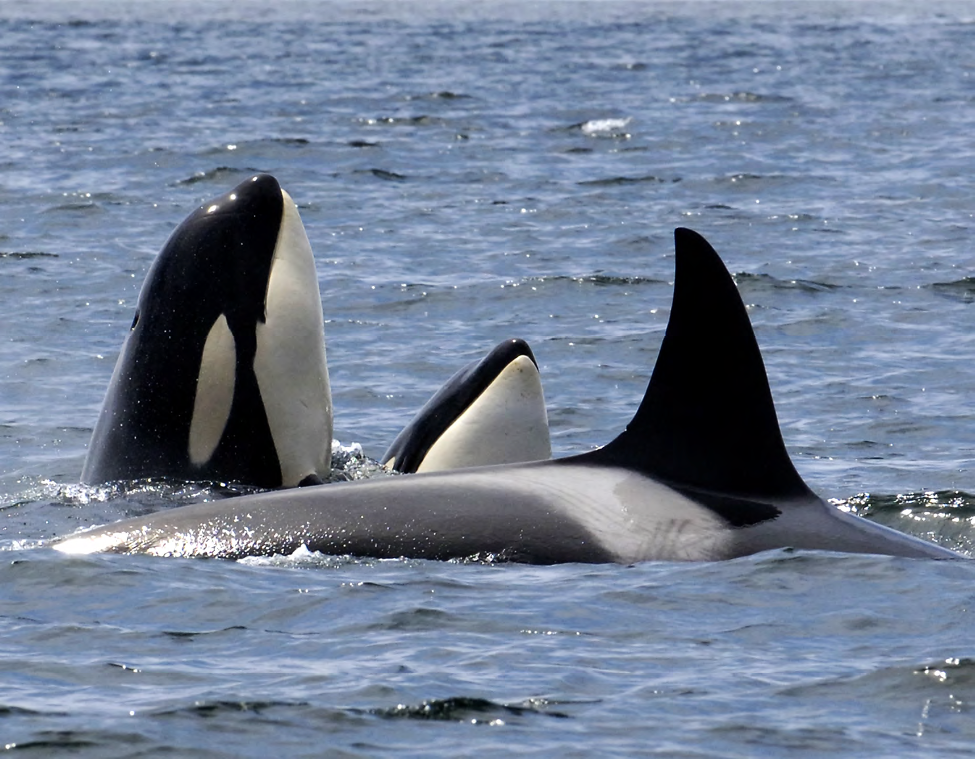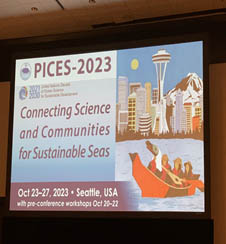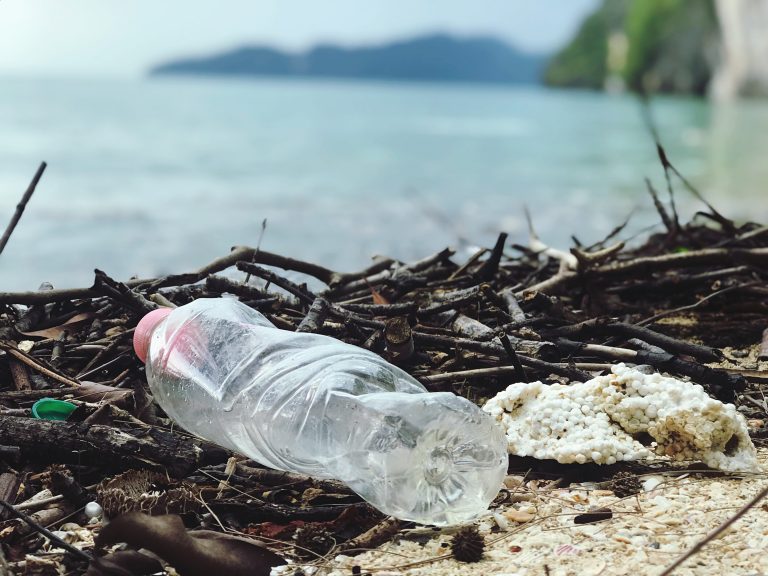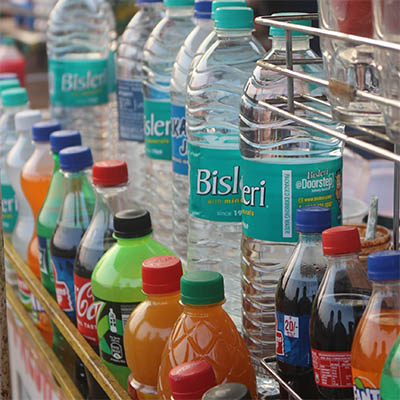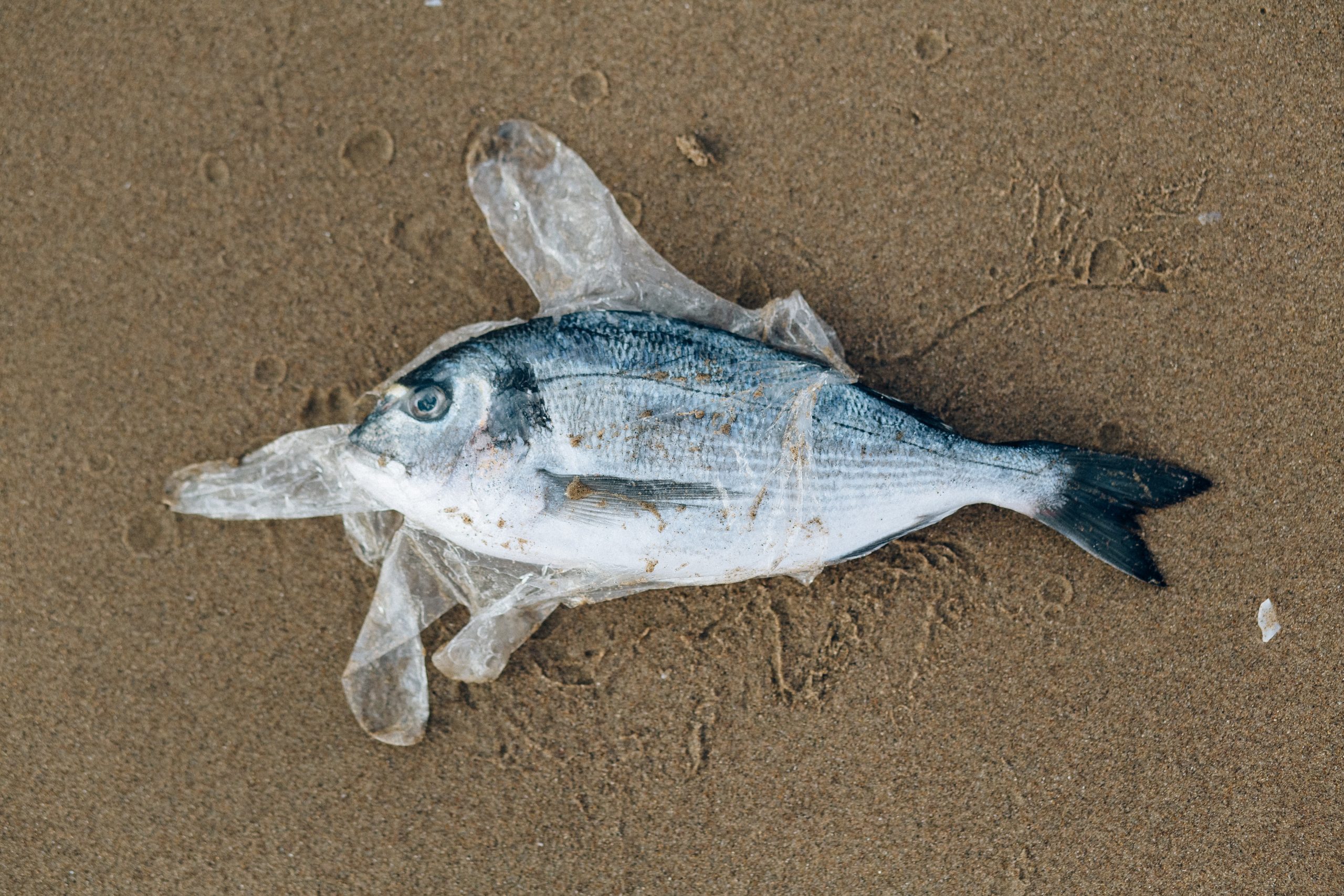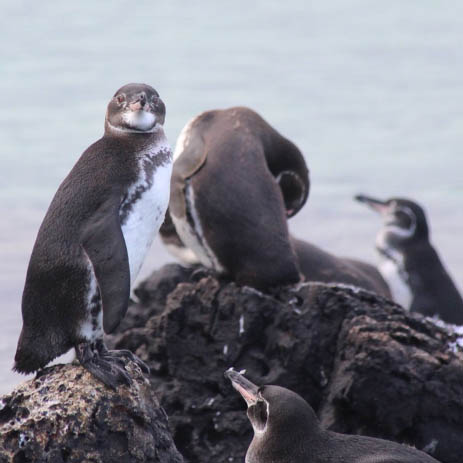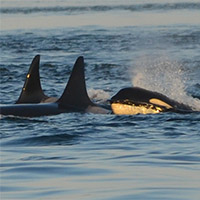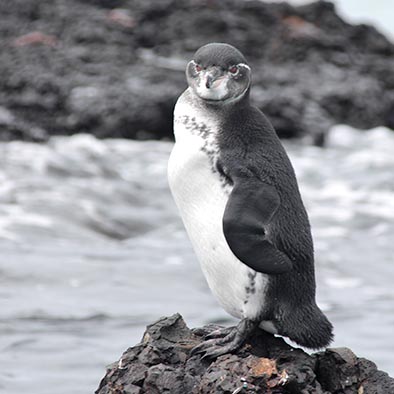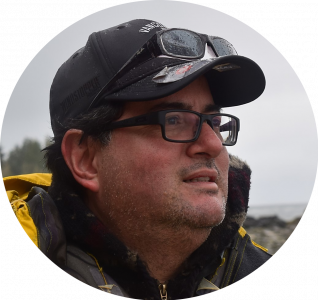 |
Research AssociateNippon Foundation-Ocean Litter Project Principal Investigator, Ocean Pollution Research Unit (OPRU) Honorary Research Associate, NF-UBC Nereus Program DegreesPhD (School of Resource and Environmental Management, Simon Fraser University, Burnaby, BC, Canada), 2011. |
Contact Information
Email: j.alava@oceans.ubc.ca
Phone: (604) 291-0019
Linkedin: LinkedIn
Twitter: @pinnipedo
Research Interests
My research interests and fields of academic expertise are broad, including marine eco-toxicology, ocean conservation and pollution, environmental toxicology and chemistry, food web bioaccumulation modeling of pollutants (Bioaccumulation Science), ocean pollution by plastics/microplastics, sea turtles and marine mammals’ eco-toxicology, marine ecology, conservation biology, tropical biodiversity and ecology, fishery science and management, climate change science, impact of climate change and acidification in marine organisms and fisheries, climate change adaptation strategies in fisheries, population dynamics and conservation of marine mammals, biology and conservation of marine mammals, seabirds and sea turtles, field ornithology; aquatic microbiology; eco-toxicological risk assessment; environmental impact assessments and environmental policy, public health, tropical parasitology and environmental/conservation medicine.
Biography
Dr. Juan José Alava is originally from Ecuador and came to Canada in 2005. He is a marine eco-toxicologist/environmental toxicologist and conservation biologist and his current research envisions the assessment of the pollution footprint and hazard risk of plastics and microplastic in the global oceans and food-web bioaccumulation modelling of microplastics in marine and coastal food webs. He also conducts food-web modelling of pollutants’ bioaccumulation (persistent organic pollutants-POPs and mercury) under the interaction with climate change to understand the combined impact of anthropogenic pollution in the ocean ecosystems and marine food webs with implication for policy. Additional research fronts have included fieldwork for the collection of samples to assess POPs and mercury in marine mammals (sea lions and fur seals from Galapagos Islands and coastal bottlenose dolphins of the Gulf of Guayaquil, Ecuador) and Antarctic seabirds, as well as the impact of fisheries interactions on marine mammals and bycatch mitigation strategies.
Currently, Dr. Alava co-lead the Nippon Foundation-Ocean Litter Project at Institute for the Oceans and Fisheries (IOF) at UBC, in close collaboration with Dr. Yoshitaka Ota (PI at University of Washington). He is also co-leading research project to assess, for first time, POPs, mercury and diseases in bottlenose dolphins of the Guayaquil Gulf in close collaboration with Fundación Ecuatoriana para El Estudio de Mamíferos Marinos/ Ecuadorian Foundation for the Study of Marine Mammals (FEMM), Superior Polytechnic School (ESPOL) and colleagues from USA (i.e. Dr. Patricia Fair, Medical University of South Carolina); and microplastic assessment in water, sediments and mussels of the Gulf of Guayaquil with colleagues from ESPOL. He is involved and co-supervises a study of microplastics in seawater, zooplankton and larval herring in Baynes Sound and Denman Island (Vancouver Island, BC) with Dr. Brian Hunt (IOF, UBC), and the support of the Association of Denman Islands Marine Stewards (ADIMS) and K’omoks First Nations. Dr. Alava collaborated with colleagues from Universidad San Francisco de Quito (Ecuador) in the first assessment of mercury in yellowfin tuna collected in waters of the Galapagos Marine Reserve and off Ecuador, as well. He is part of an ongoing research project with WWF-Germany (Fish Forward 2) to pursue the development and establishment of climate change adaptation strategies in artisanal fisheries in Ecuador and the Galapagos Islands in collaboration National Institute of Fisheries-INP (Dr. Nikita Gaibor, Ecuador), Charles Darwin Foundation (Dr. María José Barragán, Galapagos-Ecuador), Changing Ocean Research Unit (Dr. William Cheung, IOF, UBC) and Agrocampus Ouest (Dr. Didier Gascuel and Lea Monnier, France).
From 1995 to 2002, he started working as a Microbiology Research Assistant at the Instituto Nacional de Higiene y Medicina Tropical (National Institute of Hygiene and Tropical Medicine) of Ecuador, then as a Wildlife Biologist for Fundación Natura (Guayaquil Chapter) and as a field biologist specialized in environmental impact assessments at the Center of Environmental Studies, Superior Polytechnic School (CEMA, Centro de Estudios de Medio Ambiente, ESPOL, Guayaquil, Ecuador). Under a Fulbright Scholarship (2002-2004), he accomplished a Master of Earth and Environmental Resource Management at the University of South Carolina, Columbia, US and got a PhD on Environmental Resource Management (Environmental Toxicology) at the the School of Resource and Environmental Management (REM School, Faculty of Environment), Simon Fraser University (SFU) in 2011.
Dr. Alava is an Adjunct Professor at REM School (SFU) and served as Honorary Research Associate for the Nereus Program-Nippon Foundation (IOF, UBC). He was as a Research Scientist at the Ocean Pollution Research Program (OPRP)/Coastal Ocean Research Institute (CORI), at Ocean Wise (Vancouver Aquarium) from 2015-2017. He is the current Science Director (honorary) of FEMM and was a collaborating scientist of the Charles Darwin Foundation for the Galapagos Islands. Alava has been involved as an environmental consultant for several environmental private firms in British Columbia and was also a research associate contractor with the Institute of Ocean Sciences, DFO Canada. He has taught diverse courses as a teaching assistant and sessional instructor in both SFU and Royal Roads University.
In the past, his research has involved the assessment of pollutants, biomagnification, and health effects of POPs such as DDTs and PCBs in endangered Galapagos sea lion and fur seal pups of the Galapagos Islands and food web bioaccumulation modeling of PCBs and PBDE flame retardant in threatened marine mammals (southern resident killer whales,) from British Columbia. Likewise, he has conducted field sampling and assessment of PCBs and PBDEs in Steller sea lions and field work and research on readioecology and bioaccumulation of Cesium 137 in Pacific salmon and foodweb bioaccumulation modelling of Cesium 137 in the regional food web of fish-eating (resident) killer whales of BC. Previous research fronts have also included the assessment of mercury and PFOS in abiotic (sediments) and biotic (lichens and seabird feathers) samples from the Antarctic Peninsula, as well as organic mercury accumulation in sediments and organisms (mussels) of the Guayaquil Gulf Estuary (Ecuador) in close collaboration with the OPRP (Vancouver Aquarium/Ocean Wise) and ESPOL. He has published more than 80 peer-reviewed publications (papers, chapters and an edited book) and was selected as an active member of the Academia of Sciences of Ecuador in 2014 (selected by an Inter-American Committee).
Dr. Alava is the founder and Principal Investigator of the Ocean Pollution Research Unit (OPRU) at IOF, UBC.
Selected Publications:
Alava, J.J. 2019.Ocean Pollution and Warming Oceans: Towards Ocean Solutions and Natural Marine Bioremediation. pp. 495-518. In: Predicting Future Oceans:Sustainability of Ocean and Human Systemsamidst Global Environmental Change.Cisneros-Montemayor, A.M., Cheung, W.W.L. and Ota, Y., A. (Eds.). Elsevier. Amsterdam, Netherlands.
Alava, J.J., Cisneros-Montemayor, A.M., Sumaila, R., Cheung, W.W.L. 2018. Projected amplification of food web bioaccumulation of MeHg and PCBs under climate change in the Northeastern Pacific. Scientific Reports 8:13460 DOI:10.1038/s41598-018-31824-5
Alava, J.J. and Ross, P. S. 2018. Pollutants in tropical marine mammals of the Galapagos Islands, Ecuador: An Ecotoxicological Quest to the Last Eden (Chapter 8). pp. 213-234. In: Marine Mammal Ecotoxicology: impacts of multiple stressors on population health. Fossi, C. and Panti, C. (Eds.). Elsevier/Academic Press. London, UK.
Calle, P., Monserrate, L., Medina, F., Calle Delgado, Tirapé, A., Montiel, M., Ruiz Barzola, M., Alvarado-Cadena, O., Dominguez, G.A., and Alava, J.J .2018. Mercury assessment, macrobenthos diversity and environmental quality conditions in the Salado Estuary (Gulf of Guayaquil, Ecuador) impacted by anthropogenic influences. Marine Pollution Bulletin 136: 365–373.
Alava, J.J. and Gantner N. 2018. Risks and radiation impacts in the B.C. coastal-marine environment following the Fukushima nuclear accident. pp. 107-116. In: Ocean Watch. K. Bodtker (Ed.). Coastal Ocean Research Institute, Ocean Wise Conservation Association-Vancouver Aquarium. Vancouver, British Columbia, Canada.
Alava JJ, Paladines F. 2017. Illegal fishing on the Galapagos high seas. Science 357(6358): 1362.
Domingo, T., Starosta, K., Chester, A., Williams, J., Lehnert, S.J., Gantner, N., Alava, J.J. 2018. Fukushima-derived radioactivity measurements in Pacific salmon and soil samples collected in British Columbia, Canada. Canadian Journal of Chemistry 96: 124–131
Alava, J.J., Cheung, W. W.L., Ross, P. S. and Sumaila, R. U. 2017. Climate change-contaminant interactions in marine food webs: Towards a conceptual framework. Global Change Biology 23:3984 -4001. doi:10.1111/gcb.13667
Alava, J.J., Calle, N. 2017. Pipelines imperil Canada’s ecosystem. Science 6321(355):140-141.
Alava, J.J., Tatar, B., Barragán, M. J., Castro, C., Rosero, P., Denkinger, J., Jiménez, P.J., Carvajal, R., Samaniego, J. 2017. Mitigating Cetacean Bycatch in Coastal Ecuador: Governance Challenges for Small-scale Fisheries. Marine Policy In press. DOI 10.1016/j.marpol.2017.05.025
Alava, J.J. and Gobas, F.A. 2016. Modeling 137 Cs bioaccumulation in the salmon–resident killer whale food web of the Northeastern Pacific following the Fukushima Nuclear Accident. Science of the Total Environment 544:56-67.
Alava, J.J., Ross, P.S., Gobas, A.P.C. 2016. Food web bioaccumulation model for resident killer whales from the Northeastern Pacific Ocean as a tool for the derivation of PBDE-Sediment Quality Guidelines. Archives of Environmental Contamination and Toxicology 70(1): 155-168 DOI: 10.1007/s00244-015-0215-y
Calle, P., Alvarado, O.; Monserrate, L.; Cevallos, J.M.; Calle, N.L., Alava, J.J. 2015. Mercury accumulation in sediments and seabird feathers from the Antarctic Peninsula. Marine Pollution Bulletin 91: 410-417.
Alava, J.J. McDougall, M.R.R., Borbor-Cordova, M.J. Calle, K.P., Riofrio, M., Calle, N., Ikonomou, M.G., Gobas, F.A.P.C. 2015. Perfluorinated Chemical in Sediments, Lichens and Seabirds from the Antarctic Peninsula: Environmental Assessment and Management Perspectives. pp. 53-75. In: Emerging Pollutants in the Environment – Current and Further Implications, Edited by Marcelo L. Larramendy, M.L.; InTech., ISBN: 978-953-51-4232-4.
Alava, J.J. and Silberg, J.N. 2014. Delisted whales good news for pipeline. Science 345 (6194): 278-279
Schiller, L.L.; Alava, J.J., Grove, J.S.; Reck, G., Pauly, D. 2014. The Demise of Darwin’s Fishes: Evidence of fishing down and illegal shark finning in the Galápagos Islands. Aquatic Conservation: Marine and Freshwater Ecosystems, 24(3) doi: 10.1002/aqc.2458
Alava, J.J., Palomera, C., Bendell, L., Ross, S.P. 2014. Pollution as a threat for the conservation of the Galapagos Marine Reserve: Environmental Impacts and Management Perspectives. pp. 247-283. In Vinueza, L. & Denkinger, J. (Eds.). The Galapagos Marine Reserve: A dynamic socio-ecological system.©Springer Science and Business Media, New York.
Alava, J.J., Calle, N. 2013. Drilling Plans Endanger Yasuni’s Biodiversity. Science 342: 931-932.
Hickie, B.E., Cadieux, M., Riehl, K., Bossart, G.D., Alava, J.J., Fair, P.A. 2013. Modeling PCB-Bioaccumulation in the Bottlenose Dolphin (Tursiops truncatus): Estimating a Dietary Threshold Concentration. Environmental Science and Technology 47: 12314-12324.
Alava, JJ.and Gobas, F.A.P.C. 2012. Assessing Biomagnification and Trophic Transport of Persistent Organic Pollutants in the food chain of the Galapagos sea lion (Zalophus wollebaeki): Conservation and Management Implications. pp. 77-108 In: Romero, A. and Keith, E. O. (Eds.), New Approaches to the Study of Marine Mammals. ISBN 979-953-307-948-5, InTech, Available from: http://www.intechopen.com/books/new-approaches-to-the-study-of-marine-mammals/assessing-biomagnification-and-trophic-transport-of-persistent-organic-pollutants-in-the-food-chain-
Alava, J.J., Ross, P.S., Lachmuth, C.L., Ford, J.K.B., Hickie, B.E., Gobas, F.A.P.C. 2012. Habitat-based PCB Environmental Quality Criteria for the Protection of Endangered Killer Whales (Orcinus orca). Environmental Science and Technology 46: 12655−12663.
Alava, J.J. 2012. Cetaceans: Monitor sea pollution to stop strandings. Nature 486:323.
Páez-Rosas, D., David Aurioles-Gamboa, D., Alava, J.J., Palacios, D.M. 2012. Stable isotopes indicate differing foraging strategies in two sympatric otariids of the Galapagos Islands. Journal of Experimental Marine Biology and Ecology 424-425:44-52.
Alava, J.J., Lambourn, D., Olesiuk, P., Lance, M., Jeffries,S., Gobas, F.A.P.C., Ross, P. S. 2012. PBDE flame retardants and PCBs in migrating Steller sea lions (Eumetopias jubatus) in the Strait of Georgia, British Columbia, Canada. Chemosphere. 88:855-864.
Alava, J.J., Barragan, M.J., Denkinger, J. 2012. Assessing the impact of bycatch on Ecuadorian humpback whale breeding stock: a Review with Management Recommendations. Ocean and Coastal Management 57: 34-43
Alava, J.J., Keller, J.M., Wyneken, J., Crowder, L., Scott, G.I. Kucklick, J.R. 2011. Geographical variation of Persistent Organic Pollutants in eggs of threatened loggerhead sea turtles (Caretta caretta) from Southeastern USA. Environmental Toxicology and Chemistry 30: 1677-1688.
Alava, J.J.; Ross, P. S.; Ikonomou, M. G., Cruz, M., Jimenez-Uzcategui, G., Salazar, S., Costa, D. P., Villegas-Amtmann, S., Howorth, P., Gobas, F.A.P.C. 2011. DDT in endangered Galapagos Sea Lions (Zalophus wollebaeki). Marine Pollution Bulletin 62: 660-671
Alava, J.J.; Salazar, S., Cruz, M., Jimenez-Uzcategui, G., Villegas-Amtmann, S., Paez-Rosas, D., Costa, D. P., Ross, P. S.; Ikonomou, M. G., Gobas, F.A.P.C. 2011. DDT Strikes Back: Galapagos Sea Lions Face Increasing Health Risks. Ambio 40:425-430
Alava, J.J.; Ikonomou, M. G., Ross, P. S.; Costa, D. P., Salazar, S., Aurioles-Gamboa, D., Gobas, F.A.P.C. 2009. Polychlorinated biphenyls and polybrominated diphenyl ethers in Galapagos sea lions (Zalophus wollebaeki). Environmental Toxicology and Chemistry 28 (11): 2271-2282.
Dominguez, G. and Alava, JJ. 2009. Observing External Clinical Signs of the Idiopathic Myonecrosis (IMN) during Production of Pacific White Shrimp (Litopenaeus vannamei) in Brazil. World Aquaculture 40(1): 12-15.
Alava, J.J., Keller, J.M., Kucklick, J.R., Wyneken, J., Crowder, L., Scott, G.I. 2006. Loggerhead sea turtle (Caretta caretta) egg yolk concentrations of persistent organic pollutants and lipid increase during the last stage of embryonic development. Science of the Total Environment 367:170–181.
Keller, J., Alava, J.J., Aleksa, K., Young, B., Kucklick, J.R., 2005. Spatial trends of polybrominated diphenyl ethers (PBDEs) in loggerhead sea turtle eggs and plasma. Organohalogen Compounds 67: 610–611
Related
Research Gate
Google Scholar
Teaching:
- Sessional Instructor: Ecology and Conservation of Coastal British Columbia (REM 375), School of Resource and Environmental Management, Faculty of Environment Simon Fraser University (Spring 2015).
- Instructor: Environmental Chemistry (ENSC 306), School of Environment and Sustainability, Faculty of Social and Applied Sciences, Royal Roads University (12 February 2013 − 31 July 2013)
- Sessional Instructor: Environmental Science and Global Changes. China Council for International Cooperation on Environment and Development (CCICED), Management for Environment & Development Training Program. International Development/SFU International & Faculty of Environment, Simon Fraser University (Summer 2013)
- Sessional Instructor: Applied Ecology and Sustainable Environments (REM 311), School of Resource and Environmental Management, Faculty of Environment Simon Fraser University (Spring 2012/Spring 2013)
- Sessional Instructor: Chemical Pesticides and the Environment (BISC 432), Department of Biological Sciences, Faculty of Science, Simon Fraser University (Fall 2012
- Sessional Instructor: Global Changes (REM 100), School of Resource and Environmental Management, Simon Fraser University (Fall 2011)
- Sessional Instructor: Environmental Science, Pollution and Global Changes. China Council for International Cooperation on Environment and Development (CCICED), Management for Environment & Development Training Program, International Development/SFU International & Faculty of Environment, Simon Fraser University (Summer 2011)
- External Teaching Assistant: General Biology, (BISC 102), Department of Biological Sciences, Simon Fraser University (Summer 2011)
- Co-Instructor/Advisor for direct studies course (ENV 489) at the School of Resource and Environmental Management, Simon Fraser University (Spring 2011)
- Teaching Assistant: Environmental Risk Assessment and Management of Hazardous Substances, (REM 445), School of Resource and Environmental Management, Simon Fraser University (Fall 2009)
- Sessional Instructor: Population Dynamics (BISC 407), Department of Biological Sciences, Simon Fraser University (Spring 2007)
- Teaching Assistant: Global Changes (REM 100), School of Resource and Environmental Management, Simon Fraser University (Fall 2006/Spring 2007)
- Teacher of Zoology and Ecological Projects: Latin-American Christian University, School of Ecotourism, Guayaquil, Ecuador (August 2000-August 2001)
Academic Supervision and Mentoring:
Supervisor for PhD Thesis Research Proposal Comprehensive Examination “Sorption of trace elements (Cu, Zn, Pb, Cd and Hg) by microplastics within intertidal sediments; a laboratory, field and modeling approach” by Tamara Kazmiruk, Dr. Leah Bendell (School of Resource and Environmental Management, Simon Fraser University (31 May 2019)
Supervisor for Master (MRM) research project defense “Sources, spatial variability and uptake of Polychlorinated biphenyls (PCBs) in Southern Resident killer whales” by Robyn Pearce (Senior Supervisor, Dr. Frank Gobas), School of Resource and Environmental Management, Simon Fraser University (27 August 2018)
External Examiner Master thesis defense “Bioaccumulation of Contaminants in the Food-chain of the Coopers Hawk” by Kate Fremlin (Supervisors, Dr. Frank Gobas, and John Elliott), Department of Biological Sciences, Simon Fraser University (24 August 2018).
Internal-External Examiner, PhD Thesis Proposal Defense/Comprehensive Examination, “Drawing on multiple knowledge systems to revive Coast Salish clam gardens as living eco-cultural seascapes: fostering social-ecological resilience and Indigenous resurgence” by Skye Augustine (Supervisor, Dr. Anne Salomon), School of Resource and Environmental Management, Simon Fraser University (11 April 2018).
Committee Chair for Master (MRM) research project defense, “Economics of Biological Invasion: Hound’s Tongue (Cynoglossum officinale) and Livestock Production in British Columbia” by Rupananda Widanage (Supervisor, Dr. Duncan Knowler), School of Resource and Environmental Management, Simon Fraser University (07 March 2012)
Committee Chair for Master (MRM) research project defense, “Developing Ecosystem Based Quality Guidelines in British Columbia” by Jennifer Arblaster (Supervisor, Dr. Frank A. P. C. Gobas), School of Resource and Environmental Management, Simon Fraser University (06 January 2012)
Co-Instructor/Advisor of direct studies course (ENV 489) for Melissa Heft (Undergraduate Research Project: Does Continentalization Erode the Resilience of the Galapagos Species?) at the School of Resource and Environmental Management, Simon Fraser University (Spring 2011)
Committee Chair for Master (MRM) research project defense, “An in vitro method for obtaining biotransformation rates for benzo[a]pyrene and diethyl phthalate using the Sprague-Dawley rat small intestine” by Stephanie Ko (Supervisor, Dr. Frank A. P. C. Gobas), School of Resource and Environmental Management, Simon Fraser University (10 December 2010)
Committee Chair for Master (MRM) research project defense, “Development and application of a Methodology for the Derivation of Sediment Quality Criteria in British Columbia, Canada” by Molly Brewis (Supervisor, Dr. Frank A. P. C. Gobas), School of Resource and Environmental Management, Simon Fraser University (6 August 2010).
Related stories:

